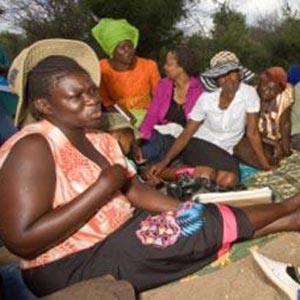
THOUSANDS of women and young girls are being exposed to serious health risks as sanitary wear has become a luxury for them due to the dire economic situation obtaining in the country.
By HAZVINEI MWANAKA
Most women from disadvantaged groups are resorting to harmful alternatives as they cannot afford proper sanitary wear.
Thirty-four-year-old Evangelista Kasono, who, together with her five children beg in the streets of Harare, is one such disadvantaged woman who cannot afford sanitary wear.
She has all the signs of somebody who is struggling to make ends meet. Kasono has been roaming the streets of Harare with her children since her husband died several years back.
“We don’t have money to buy those luxuries because we can hardly feed ourselves. Our number one priority is to find something that can sustain us, so we hardly consider the issue of sanitary wear,” Kasono said.
“We use rags from torn clothes that are donated to us. But to be honest, it’s awful and uncomfortable. We develop sores and itchiness that we ease by applying Vaseline [petroleaum jelly].”
Kasono and her family live in a shack in Mbare at the bus terminus. She walks to the central business district every morning to beg for food in the streets.
- Chamisa under fire over US$120K donation
- Mavhunga puts DeMbare into Chibuku quarterfinals
- Pension funds bet on Cabora Bassa oilfields
- Councils defy govt fire tender directive
Keep Reading
“There are toilets at the bus terminus, so that is where we wash our rags which we later dry in our makeshift dwellings,” she said.
A petition was presented to Parliament in 2011 by a group of young women who were pushing for a Bill that allows for affordable and easy access to sanitary wear.
The petition said young women continued to succumb to cervical cancer due the alternatives they were using such as rags, newspapers and tissues, while many others were succumbing to reproductive tract infections.
Zimbabwe National Council for the Welfare of Children national director, Taylor Nyanhete said sanitary wear must be made a basic human right and government must ensure it is made available either free of charge or at a subsidised price.
“Stakeholders involved in the production, distribution and retailing of sanitary wear should standardise the price of all sanitary wear and schools can fundraise for free provision of sanitary wear using the civic day as a fundraising tool,” said Nyanhete.
Unesco estimates that one in 10 African girls miss school during menstruation and eventually drop out because of menstruation-related issues such as inaccessibility of affordable sanitary wear.
Clinical Immunologist and allergies specialist, Elopy Sibanda said there were risks associated with the use of rags in place of sanitary wear. “Rags are not suited to the sensitive tissues that are meant to be covered by sanitary wear. They are likely to bruise and damage tissues and also introduce infections,” he said.
“There is an increased risk of bacterial infections. Patients might also get fungal infection and at times there is a long term risk of infertility resulting from ascending genital infection.”
Government, community leaders and non-governmental organisations met in Seke rural recently celebrating the Menstrual Hygiene Day and encouraged men to positively support women under the theme Breaking the taboo — Let’s start conversations on menstruation.
Women Affairs, Gender and Community Development deputy minister, Abigail Damasane said government was geared to support the work that other stakeholders were doing.
“As a ministry, we are working hard to address this situation. we appreciate the work that our partners are doing,” she said
“Menstruation is a natural cause. It is disheartening that women are using harmful means, and we encourage men to also support us. We need this to be preached at school, gender clubs and churches.”
Precious Tongai, a secondary school girl from Masvingo, said a number of girls in her community were facing a lot of challenges regarding menstruation.
“We come from poor backgrounds and of course we end up using rags as we do not have enough money to buy pads. At schools we do not have proper toilets that are suitable for freshening up. Another challenge that we face is water,” she said.
Ward trainer in reusable pad making, Judith Meck from Mapanzure in Masvingo said a number of girls were dropping out of school because of menstruation.
“Girls are facing a lot of challenges; many abscond from school because of menstruation.They are afraid of being jeered at school when they spoil their clothes as most cannot afford to have proper sanitary wear,” she said.
Admore Nyawasha, a Water and Sanitation Hygiene Advisor (Wash) for an international NGO, said his organisation was working with the Standards Association of Zimbabwe (SAZ) on research on the use of reusable pads.
“We are doing this because we need options for our girls. We want to work with about 49 000 girls. We are also working with other organisations in designing toilets that are usable for girls in schools,” said Nyawasha.










